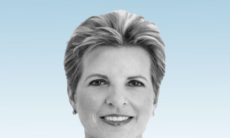This edition’s collection reflects on cultivating psychological safety in our teams and larger organizations, so we can bring our best, authentic selves in service of each other and our customers/clients. The linchpin for team effectiveness, leaders have a significant opportunity to focus on and expand their concept of psychological safety to enable individual authenticity while facilitating team success.
The reading and listening provide an array of perspectives of the attributes, behaviors, rituals, etc. of psychologically safe workplaces, while considering the implications for how we can honor the best of who we are and the unique gifts we have to offer. There are also several powerful pieces that contemplate if and how we can (and should?) really be authentic and the price for too much authenticity at work, especially for women or people of color. They call into question organizations that only pay lip service to authenticity, and explore the attendant implications for safety, inclusion, performance and morale in environments that expect and reward people who “act and talk like us.” In total, there is much to reflect on as workplace models and attitudes toward work evolve.
Articles
Harvard Business Review: Why Authentic Workplaces Are More Ethical. “The takeaway here is that understanding the value of authenticity in the workplace and taking active steps to promote it can reduce the risk of unethical behavior in your business. In short, fulfilling people’s need for identity integrity will serve your organization’s need for strong ethics on every front.”
Harvard Business Review: Gravitas Is a Quality You Can Develop. “The best kind of gravitas comes from this authenticity, from deep interpersonal trust that you build by being clear about the impact you want to make on others, empathizing and finding out about the people you work with, and adhering to your sense of integrity. You can increase your gravitas and still be you.”
Harvard Business Review: What Psychological Safety Looks Like in a Hybrid Workplace. “Sorting out hybrid work arrangements will require managers to rethink and expand one of strongest proven predictors of team effectiveness: psychological safety. When it comes to psychological safety, managers have traditionally focused on enabling candor and dissent with respect to work content. The problem is, as the boundary between work and life becomes increasingly blurry, managers must make staffing, scheduling, and coordination decisions that take into account employees’ personal circumstances — a categorically different domain.”
Harvard Business Review: Make Your Meetings a Safe Space for Honest Conversation. “You can increase the freedom, candor, and quality of conversation in your meetings by focusing on two key areas: giving permission and creating safety. Permission to say or ask anything is priceless. It allows us to fully express ourselves: to seek what we want, to give feedback, to speak up about issues when we find the need…Secondly, when people feel safe in a meeting, they are more likely to be vulnerable and speak their minds. This will help your conversations grow broader and deeper.”
Books
Love by Roddy Doyle. “Two old friends reconnect in Dublin for a dramatic, revealing evening of drinking and storytelling…Davy and Joe were drinking pals back in their Dublin youth. Davy rarely sees Joe for a pint anymore–maybe one or two when Davy comes over from England to check on his elderly father. But tonight Davy’s father is dying in the hospice, and Joe has a secret that will lead the two on a bender back to the haunts of their youth…As Joe’s story unfolds across Dublin–pint after pint, pub after pub–so too do the memories of what eventually drove Davy from Ireland…As much a hymn to the Dublin of old as a delightfully comic yet moving portrait of what it means to try to put into words the many forms that love can take, Love marks a triumphant new turn for Roddy Doyle.”
Podcasts
TEDxSeattle: The myth of bringing your full, authentic self to work. “Calls for authenticity at work ask for passionate people with diverse, fresh perspectives who challenge old ways of thinking. But too often workplace culture fails to support the authenticity of professionals of color and other underrepresented groups, leading instead to backlash and fewer opportunities. Writer Jodi-Ann Burey outlines steps toward exposing privilege and achieving true equity on the job — and implores those in leadership positions to accept responsibility for change.”
Freakonomics Radio How to Succeed by Being Authentic (Hint: Carefully). “John Mackey, the C.E.O. of Whole Foods, has learned the perils of speaking his mind. But he still says what he thinks about everything from “conscious leadership” to the behavioral roots of the obesity epidemic. He also argues for a style of capitalism and politics that at this moment seems like a fantasy. What does he know that we don’t?”
WorkLife with Adam Grant: Is it safe to speak up at work? “Are you afraid to share bad news, ask for help, or admit you were wrong? These are signs of being in a psychologically unsafe work environment. Adam breaks down the importance of psychological safety in preventing errors and promoting innovation and inclusion, and examines what it takes to build a culture of voice rather than silence.”
Blog Posts
Aeon: Authenticity is a sham. “From monks to existentialists and hipsters, the search for a true self has been a centuries-long project. Should we give it up?”
Seth’s Blog: Identity is often used against us. “Evolving our choices and our tastes is part of being human. Establishing your identity as someone who is not static, open to change and eager for better makes it far easier to engage in a world where some would prefer us to do precisely the opposite.”
Psyche: When your authenticity is an act, something’s gone wrong. “So, which is it? Is authenticity fading away as a personal ethic or is it something everyone wants to be? In fact, both are true – because the meaning of authenticity is changing.”
Arts, Music, Culture & Humor Corner
The New York Times: Jasper Johns: Divide and Conquer. “‘Mind/Mirror,’ a monumental retrospective at the Whitney Museum and the Philadelphia Museum of Art, reveals an artist’s protean talent, changing perspectives and resiliency over six decades.”
PBS: Icon – Music Through the Lens. “Featuring in-depth and often irreverent interviews with the world’s best-known music photographers, musicians, gallerists, music journalists and social commentators, Icon: Music Through the Lens is an eye-opening, six-part, thrill ride through the amazing world of music photography.”
The New Yorker: In a Divided Country, Communal Living Redefines Togetherness. “The traditional home is under renovation. Can people find meaning in groups?”
McSweeney’s: I Have Decided To Live the Remainder Of My Life as a Simple Woodland Creature. “Admittedly, this plan raised some eyebrows when I brought it up with my husband.”
Reflections
“Beyond myself, somewhere, I wait for my arrival.” — Octavio Paz
“I belong everywhere I go, no matter where it is, or who I am with, as long as I never betray myself. The minute I become who you want me to be, in order to fit in and make sure people like me, is the moment I no longer belong anywhere.” — Brené Brown
“The dynamic of friendship is almost always underestimated as a constant force in human life: a diminishing circle of friends is the first terrible diagnostic of a life in deep trouble: of overwork, of too much emphasis on a professional identity, of forgetting who will be there when our armored personalities run into the inevitable natural disasters and vulnerabilities found in even the most average existence…
The ultimate touchstone of friendship is not improvement, neither of the other nor of the self, the ultimate touchstone is witness … to have walked with them and to have believed in them, and sometimes just to have accompanied them for however brief a span, on a journey impossible to accomplish alone.” — David Whyte, source: Consolation
This article was originally published here.







